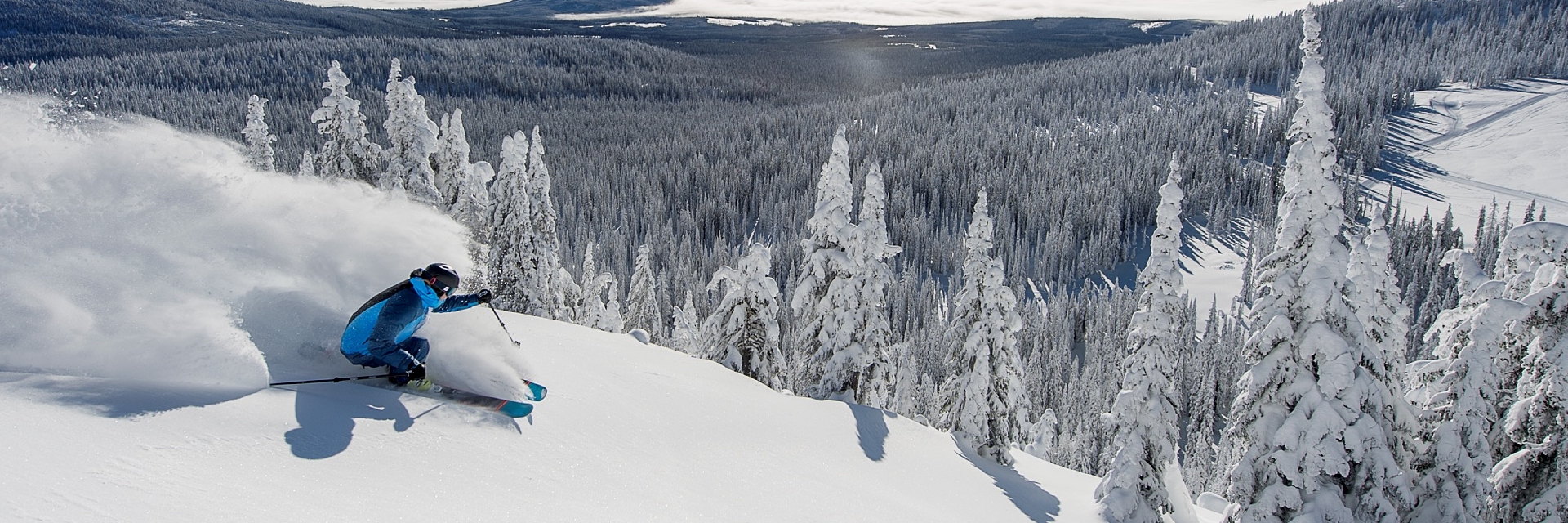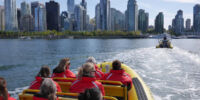
Big White Ski Resort | Blake Jorgenson
How Destination BC Used Tags to Measure the Impact of Ski Marketing
Digital marketers know that the consumer’s path to purchase is no longer linear or even cyclical. It’s become increasingly frenetic, involving multiple channels and devices, and often involves more than 100 individual online interactions before a booking is made. In response to this major shift, new advertising technologies have emerged that allow marketers to track and engage with consumers across multiple channels, creating connection points between data, and across media touchpoints that were not previously possible.
Destination BC had been capturing and reporting on direct referrals to ski resorts through annual Ski Marketing Campaigns – meaning clicks from Destination BC-owned website properties or ads that linked directly to a ski resort’s site. This provided a limited view of the consumer path to purchase, and of the true impact of Destination BC’s annual digital marketing investment into the ski industry in BC.
Destination BC determined it would be beneficial to also measure indirect referrals, to better understand the effectiveness of marketing efforts – specifically in driving leads to ski industry partners. Capturing this information required working closely with ski resort partners on a collective approach to data sharing through tagging.
Collaborating for Results
With the support of the Canada West Ski Areas Association and eleven of its thirteen ski resorts, a collaborative approach to tagging was established.
The goal was to create an attribution model that would help Destination BC understand which marketing activities drive consumers along the purchase path to book a trip to BC. Floodlight tagging is the first step towards building this attribution model.
Floodlight tags track how many visitors Destination BC refers to a partner website (called a referral), and how many bookings those visitors actually make, whether through a Destination BC-led campaign or a sector-led campaign.
Referrals and bookings are tracked as either post-click or post-view conversions:
- Post-clicks track a user who clicked on a display ad, arrived at a site and converted.
- Post-view conversions are users who saw a display ad, did not click, but later arrived at a site indirectly by typing the site address or searching online and then converted.
This data helps Destination BC understand the effectiveness of marketing programs, and what content, and which channels, best result in conversions through the path-to-purchase, leading to better marketing optimization.
The Tagging Process
Destination BC, via its media agency, created two tags for each of the ski resorts engaged in the campaign:
- A referral conversion tag – this tag tracked website page loads when a visitor, who was exposed to a Destination BC ad, landed on a page where the tag was placed. This tag was placed on all pages on a resort’s website, except for sales confirmation pages.
- A sales conversion tag – this tag tracked when a sales confirmation page loaded after a visitor, who was exposed to a Destination BC ad, made a booking. This tag was placed on the sales confirmation pages on a resort’s website.
Each resort was provided with the two tags, instructions on how to place the tags on their website, FAQs, and a point of contact to assist with any technical problems or issues.
Tracking Effectiveness
Referrals
A total of eleven resorts placed referral tags on their websites, with tags added on a rolling basis at different times throughout the campaign.
Nearly 425,000 referrals were generated through Destination BC’s digital advertising activities. A few key highlights:
- The total number of direct referrals made in the previous year was exceeded within the first four weeks of the tagging campaign by the combined direct and indirect referrals.
- Over 90% of the referrals were post-view conversions (a consumer saw a display ad, did not click, but later arrived at a site indirectly).
- The tags provided data necessary to build a pool of qualified ski consumers.
Conversion Actions
While referrals were the primary measure of success for the campaign, floodlight tags enabled Destination BC to understand how its digital marketing activities also influenced further actions, such as travel bookings or website engagement actions. Over 2,000 booking and conversion actions were linked back to Destination BC paid media activities.
Audience Insights
These tags also allowed Destination BC to gather data and share insights on who was responding to digital campaigns.
Top referral converters of the campaign:
- predominantly male
- between the age of 35-64
- educated and affluent
- outdoor enthusiasts
- interested in travel, technology, and photography.
Some of the popular sites they visited were:
- Wunderground.com
- realtor.com
- cnn.com
- yahoo.com
Understanding these interests and related site visits can help guide Destination BC, and its ski resort partners, in increasing reach by building custom target audiences, seeking other ways to reach these audiences (i.e. partnerships), and targeting ads to the sites they visit most often.
With the support of the eleven ski resorts, in a collaborative approach to tagging, Destination BC has been able to improve the measurement of impact of digital marketing campaigns and share new information with the ski resorts.
Building on the success of this pilot, Destination BC is expanding this floodlight tagging approach with an increasing number of tourism industry partners across the BC tourism ecosystem.
To learn more and to explore if Destination BC’s tagging project can help you, visit Drive more leads to your website – Let’s play “tag”!






